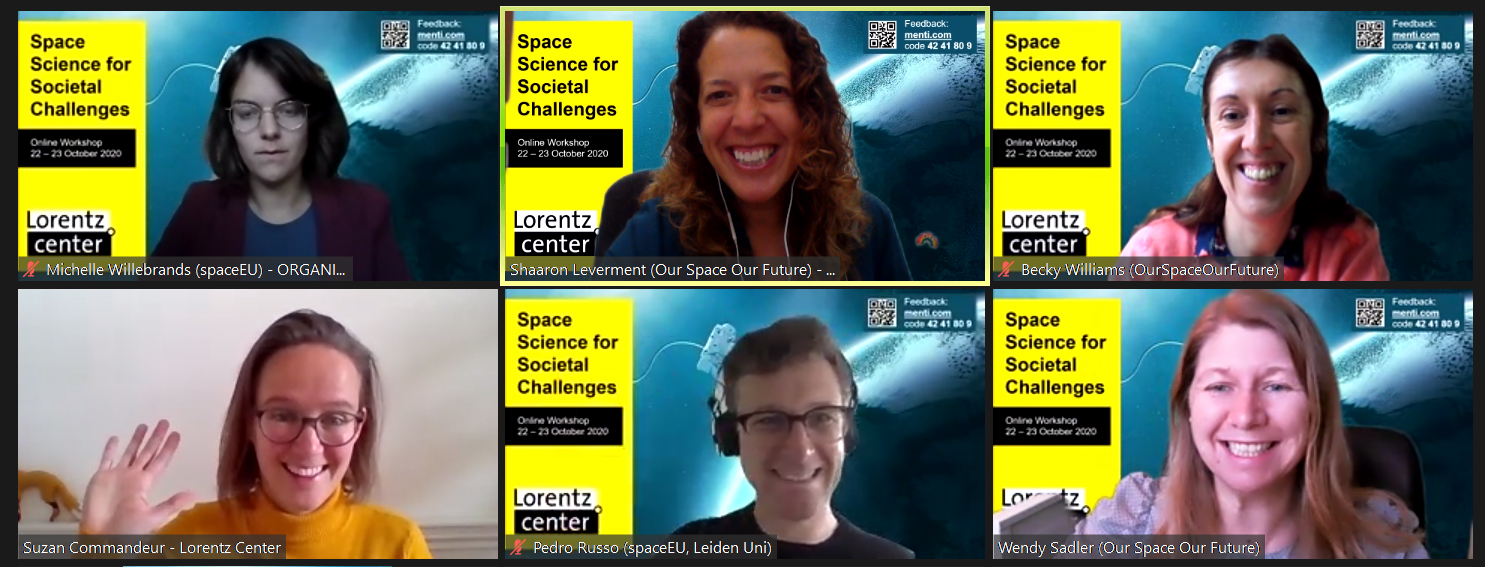On 22nd and 23rd October, two EU H2020 funded programmes –Our Space Our Future and our sister project SpaceEU – brought together 28 speakers and moderators and ~100 prestigious, international participants for an in-depth, focussed, 2-day workshop titled ‘Space Science for Societal Challenges’.
Expertly moderated by EvenFlow and the project teams, a key aim of the workshop was to address the issues arising from our widely diverse, growing, but often-fragmented European space ecosystem, and open up honest discussion between stakeholder of the barriers faced that prevent more effective collaboration at the local, regional, national and international levels.
Highlighting organisations operating both in the upstream and downstream space sector, as well as those working in the more traditional and ‘new space’ sectors, the meeting was framed by the role of Space to advance The Sustainable Development Goals. We kicked off with speakers Maria Vittoria D’Inzeo (Policy officer, EC RG for Defence Industry and Space – DG DEFIS), Chiara Manfletti (ESA Policy and Programme Coordination) and Mary Ritter (EIT Climate-KIC), and from this European space sector and policy landscape setting, the workshop then drilled down into 4 focused sessions exploring:
- The future of space industries
- Space science and astronomy research
- Space education training and skills
- Public engagement in the European space sector
Delegates represented many fields including astronomy, space industry, policy, government, economics, education and academia, skills development, and environmental and technological sciences. Following vibrant and provocative short talks from invited speakers, discussion focussed on the benefits and challenges of programmes that might achieve greater cohesion and communication between and within the 4 pillars outlined above. This included exploration of the value or feasibility of a new Space-KIC (Knowledge and Innovation Community).
Our Space Our Future and SpaceEU were delighted with the outcomes of the meeting and the level of interest, interaction and support from delegates attending. Be sure to ‘watch this space’ as the conclusions of this meeting will soon be released as a white paper exploring potential models for collaboration within the European space community, and Our Space Our Future will subsequently follow up with a feasibility study to further investigate recommendations uncovered at this first meeting.

